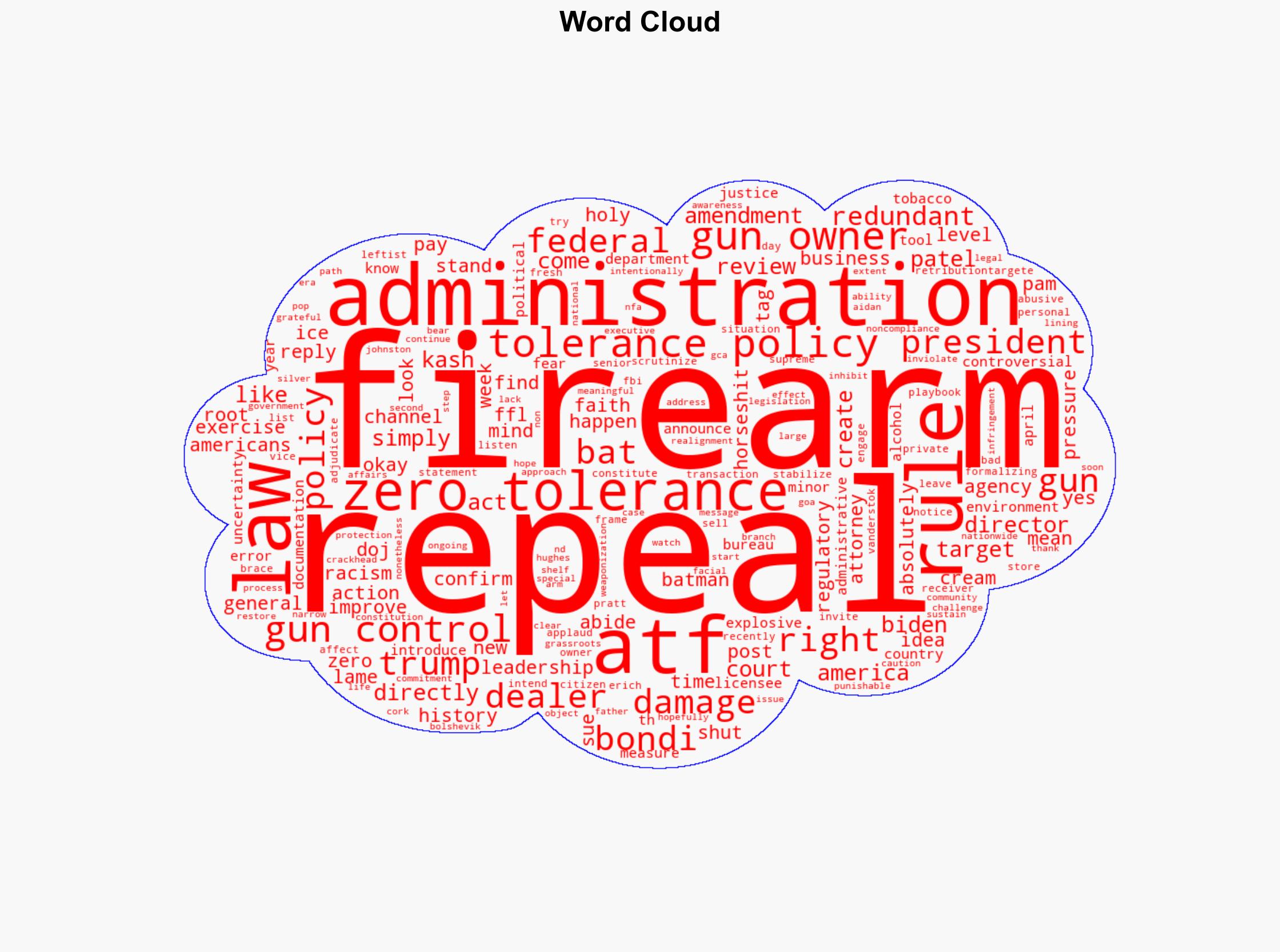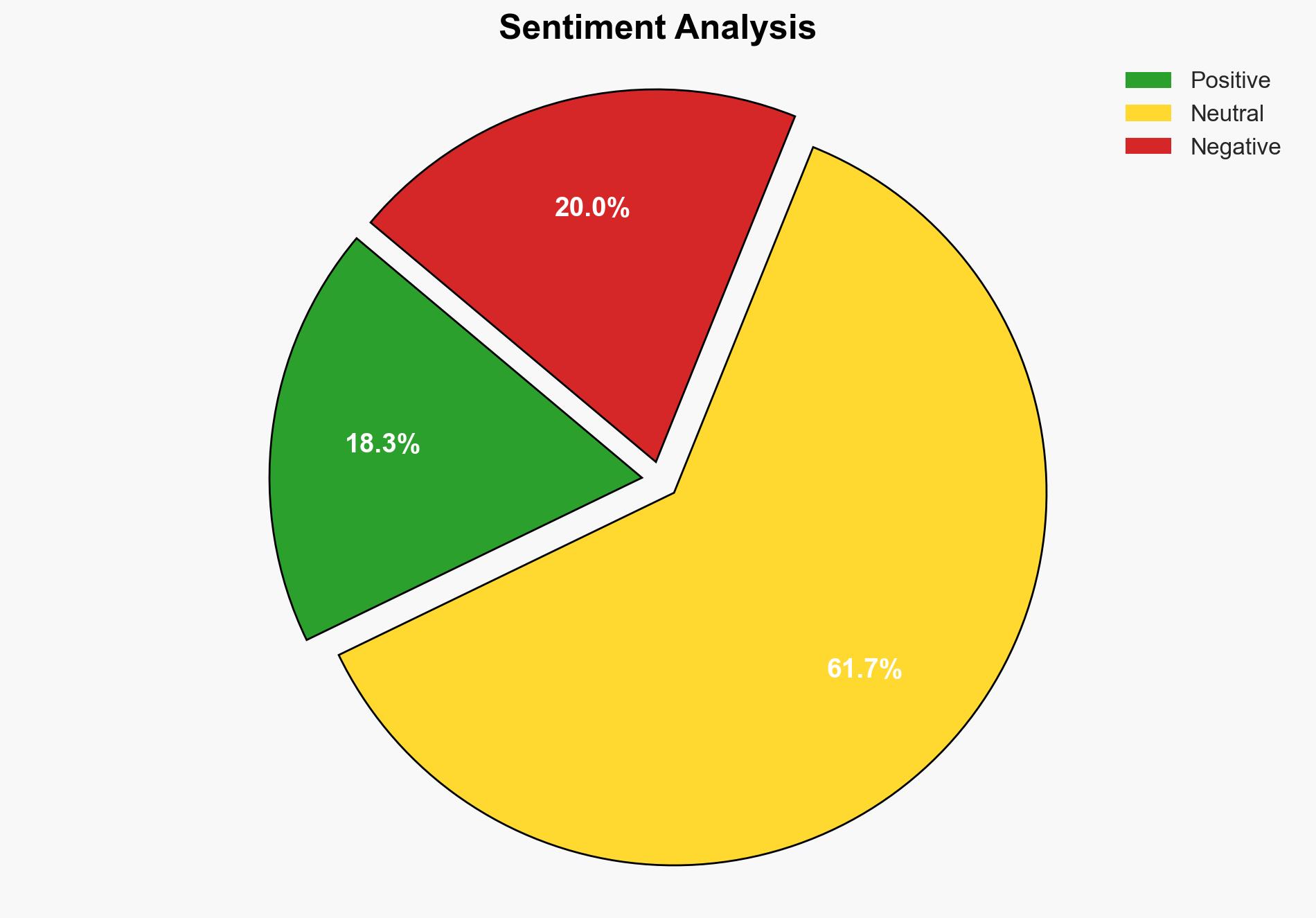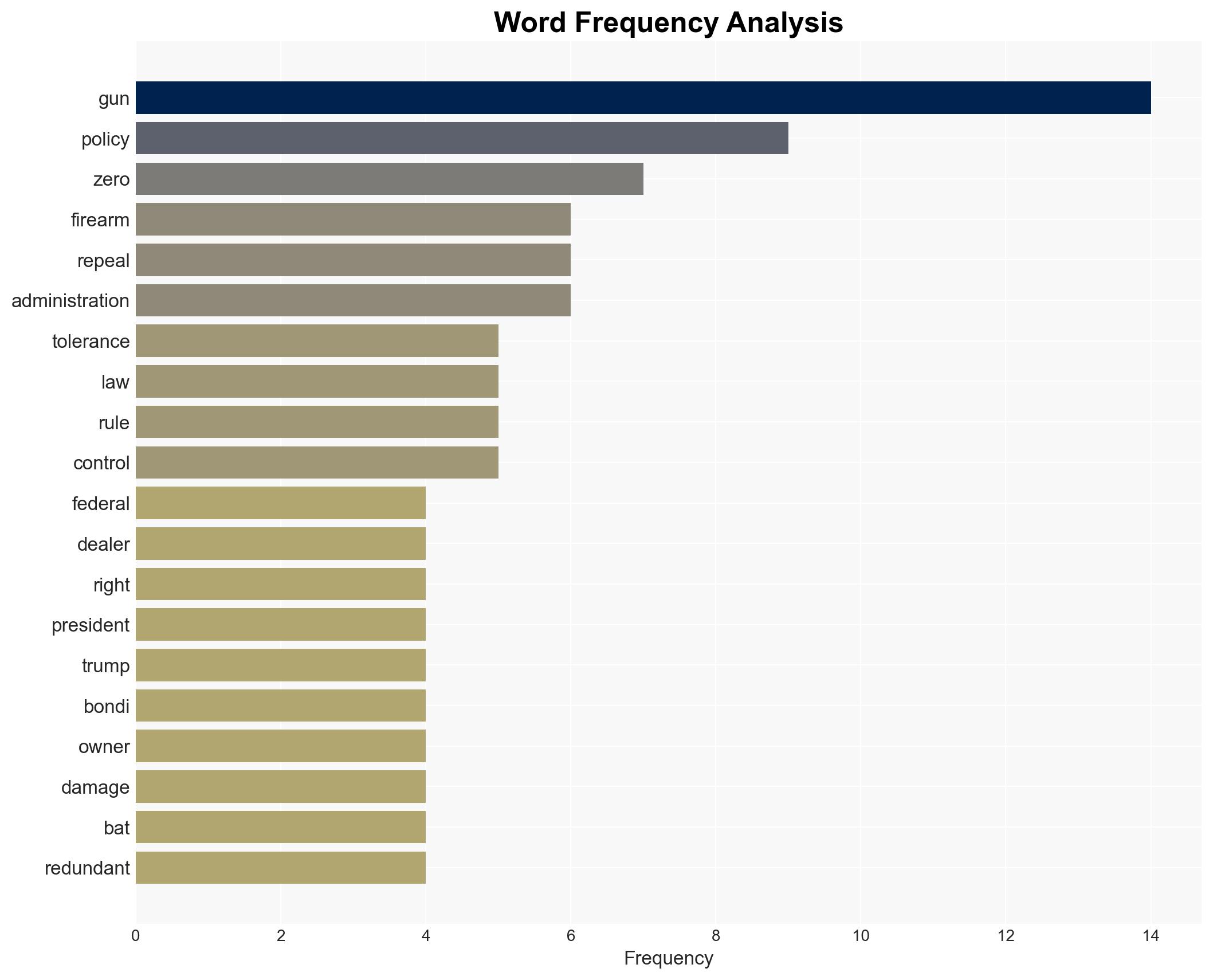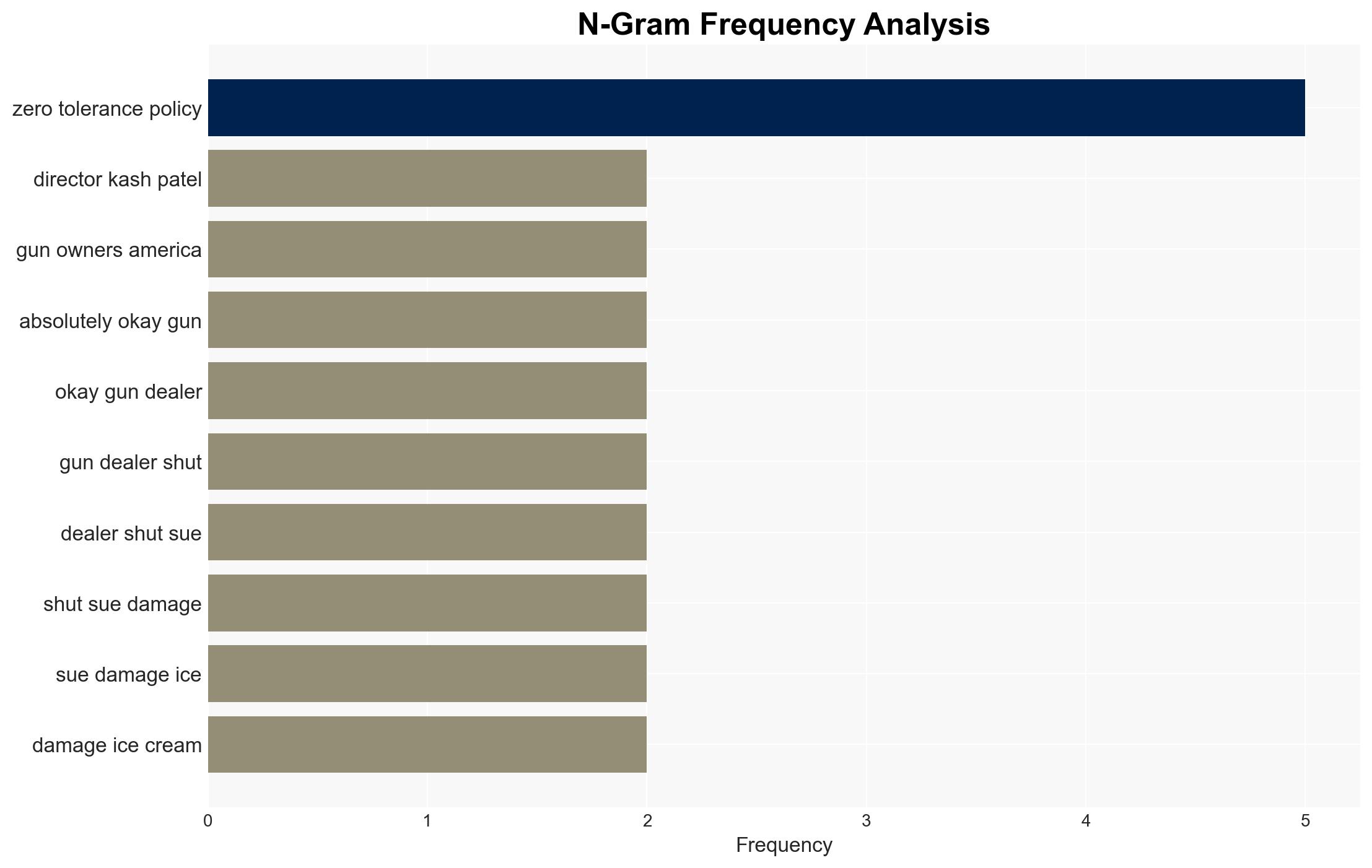DOJ and ATF Repeal Zero Tolerance Policy – The Truth About Guns
Published on: 2025-04-08
Intelligence Report: DOJ and ATF Repeal Zero Tolerance Policy – The Truth About Guns
1. BLUF (Bottom Line Up Front)
The Department of Justice (DOJ) and the Bureau of Alcohol, Tobacco, Firearms, and Explosives (ATF) have repealed the Zero Tolerance Policy, a measure initially introduced to target firearm dealers for minor documentation errors. This repeal is seen as a response to criticisms of the policy being used for political retribution against gun store owners. The decision is expected to alleviate the operational pressures on Federal Firearm Licensees (FFLs) and is perceived as a move towards restoring Second Amendment rights.
2. Detailed Analysis
The following structured analytic techniques have been applied for this analysis:
General Analysis
The repeal of the Zero Tolerance Policy marks a significant shift in federal firearm regulatory approaches. Under the previous administration, the policy was criticized for creating an environment of fear among gun dealers, potentially leading to closures and legal challenges. The current administration’s decision to repeal this policy is seen as a strategic realignment with constitutional rights, particularly the Second Amendment. This move may also reflect a broader intention to review and potentially revise other firearm-related regulations.
3. Implications and Strategic Risks
The repeal could lead to increased stability within the firearm retail sector, reducing the risk of arbitrary enforcement actions against dealers. However, it may also spark debates on gun control policies, potentially leading to legislative challenges. The decision could influence regional stability by altering the dynamics of gun ownership and regulation, impacting both national security and economic interests.
4. Recommendations and Outlook
Recommendations:
- Monitor the implementation of the repeal to ensure compliance and assess its impact on firearm-related incidents.
- Consider developing clear guidelines for firearm dealers to prevent future regulatory ambiguities.
- Engage with stakeholders to address concerns and foster dialogue on responsible gun ownership and regulation.
Outlook:
In the best-case scenario, the repeal leads to a more balanced regulatory environment, fostering trust between firearm dealers and regulatory bodies. The worst-case scenario involves potential backlash from gun control advocates, leading to renewed legislative efforts to impose stricter regulations. The most likely outcome is a period of adjustment as stakeholders adapt to the new regulatory landscape, with ongoing debates shaping future policies.
5. Key Individuals and Entities
The report mentions significant individuals such as Donald Trump, Pam Bondi, Kash Patel, Erich Pratt, and Aidan Johnston. These individuals have been highlighted for their involvement or statements regarding the repeal. Organizations such as the DOJ, ATF, and Gun Owners of America are also central to the developments discussed in this report.





